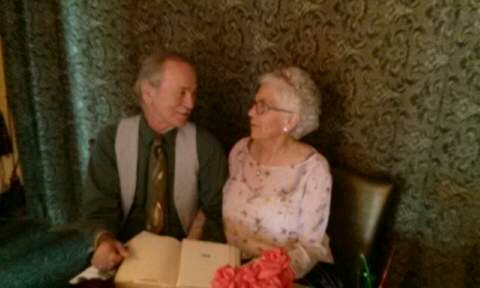(and my epitaph)
Please read to the end.
On last night’s local news I heard a local city councilman, a self-described Millennial, called upon his fellow Millennials — in fact, all of his fellow humans, to do whatever we can to halt the spread of Covid-19, stressing the seriousness of this crisis and the need for immediate and effective action. His remarks stimulated the idea in my head that the world is, at this moment, facing a future that is unique and destined to transform our lives forever. Just take a look at how our lives are different from at any other time in history: we are, by free-will or coercion, sheltering in our homes and committed to doing so for an uncertain amount of time; we have, in many cases, panicked and overstocked our pantries and storage spaces; cancelled all public concerts and shows or gatherings of more than 5 or 10 people; we have cancelled the NBA, XFL, NCAA, MLB seasons, in a world where sports are considered essential to life itself; a Chinese billionaire has pledged to send to the U.S. a million surgical masks and half a million Covid-19 test kits; the U.S. government is planning to send $1000 or more to each citizen as compensation for our voluntary quarantining. Not your world as usual, is it? And where will it go from here?
Interestingly enough, in China and northern Italy, air pollution has been reduced to the point where thousands of lives have already been saved that would have been lost to respiratory diseases (in response to the danger of the respiratory disease we are currently battling whole-heartedly). Also interestingly, the world would never have submitted to the harsh measures we have undertaken to fight Covid-19 just to fight air pollution and climate change. (Who knew it would be so easy?)
What a strange new world we have found ourselves in. We are doing things for each others’ wellbeing that we would not previously have contemplated doing. We as a species seem to be undergoing a transformation. Each and every one of us will undoubtedly be touched by the death or serious illness of a family member or friend. What if we seized this time in our evolution to commit ourselves to continue to press forward in this movement toward a more caring, loving, supportive world? We have come so far in only a few weeks! How close might be the tipping point that would alter everything? Are you up for the final push?
I remember, in the 1980s and 1990s, my volunteer days with a global organization committed to ending hunger in the world. The Hunger Project’s source document compassionately spoke of the deaths of millions of people annually as a result of hunger. Its proposed solution to ending hunger is creating the context in which that can occur. In other words, the creation of The End of Hunger as an Idea Whose Time Has Come. (As Victor Hugo said,”Nothing is so powerful as an idea whose time has come”.)
Humanity is, for the most part, currently acting as one during this crisis. The opportunity has been created for us to transform our relationship not only to each other but also our relationship with the entire planet — to care for and nurture the world as a whole, each one doing whatever is in their power to do in order to bring that vision into reality, to create an idea whose time has come. To quote The Hunger Project, “A person can die as evidence of the persistence of hunger and starvation, in which case that person’s life and death have been reduced to meaninglessness. A person can die in the context of the end of hunger and starvation, and the context affords meaning — almost purpose — to that life and death.”
There is a sizeable chance that hundreds of thousands, if not millions, of people in the U.S. will be infected. I am in one of the age groups that is most at risk during this crisis, so I could easily be in the 2%-plus who don’t survive. Should that become a reality I offer my proposed epitaph: “If my life has not made a difference in the world, please, God, may my death do so.”
Thank you for reading this far. Now, please, don’t let this opportunity turn all the world’s deaths from this virus be meaningless. Don’t let this opportunity to transform the world become wasted. We’re so close!
